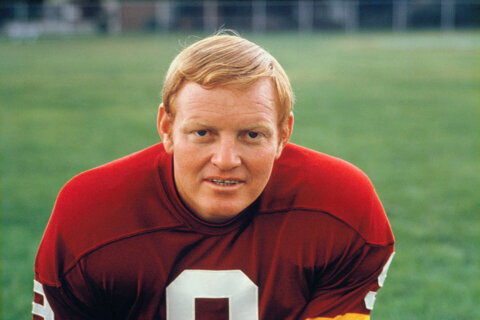Baseball isn’t dying. But it is changing.
As MLB attendance continues to trend downward for the sixth time in seven years, the sport has done plenty of hand-wringing over the way the game is played. But as it happily turned a blind eye to the real issue, the sport has devolved into a league with a disturbing dearth of competitive teams and meaningful games.
The trendy tear-down-to-build-up tanking cycles en vogue across professional sports present a problem: they leave teams playing several years’ worth of noncompetitive, bad baseball. And as the prices on everything — from tickets and food, to parking, merchandise, and anything else tied to the game — keep going up, the games themselves have less and less competitive stakes.
Five years ago, in 2014, only seven teams finished with a run differential greater than 100 over the course of the season, and there was not a single 100-win or 100-loss team in the sport. Never, since the sport expanded to 30 teams in 1998, have we had more than 17 teams finish with a greater than 100 run differential.
Heading into the final weekend of the regular season this year, there are 20 (with the Cubs on the brink at +98). Since having seven 100 win/loss teams in 2002, we haven’t had as many as the five we had last year. This year there are seven, with the Twins (99 wins) and Braves (97) both potentially joining the list.
This has led to comical divides in the standings. While the AL Wild Card Race has left at least some uncertainty about this year’s postseason field, the depth of the divisional races is far bleaker.
Since 2004, MLB has not had more than five teams finish more than 30 games out of first place in the same season. In 11 of the intervening years, that number has been three or fewer. This year, depending on how the final weekend shakes out, somewhere between 9-11 teams will finish 30 or more games behind their respective division winners.
It was easy to focus on the Baltimore Orioles’ singular futility in 2018, finishing 61 games out of first place. But heading into Friday, though this year’s Baltimore club is 50 games back, they aren’t even the furthest out. That distinction belongs to the Detroit Tigers (52.5 GB), while the Kansas City Royals and Miami Marlins each sit more than 40 games back.
It should not surprise anyone that, of the seven biggest losers in per game attendance from last season, five of them — the Blue Jays, Mariners, Tigers, Orioles and Royals — are among baseball’s “rebuilders” (the list also includes the Giants, who shed $32 million in payroll this year, and the Nats, who are coming off the inflated season ticket numbers that come with hosting an All-Star Game). Of baseball’s 10 lowest per game attendance draws, seven have lost 92 games or more.
This is, of course, the byproduct of the optimization of everything in the sport, the hyper focus on chipping away everything at the margins at the expense of the fans, both financially and in the enjoyment of the sport. We can’t make losing teams charge less for tickets (though they should be doing that on their own), but maybe there’s a way we can help push them not to tank.
The MLB Draft isn’t nearly as important or as immediately impactful as it is in other sports, with an ever-increasing chunk of talent coming from abroad and several years of development between signing a professional contract and making the big leagues.
Still, we’ve seen teams use the loss of a draft pick as an excuse not to sign free agents, leading to the Dallas Keuchel and Craig Kimbrel sagas. So, if they’re really that important, let’s use the draft to incentivize staying competitive, rather than rewarding the worst teams.
Without a mechanism like relegation in place, the only way to disincentivize losing is to take away some of its benefits. Instead of setting the draft order from worst record to best, start it with the best record of the non-playoff teams and work your way down from there. Once you get to the worst record, then work in reverse order for the teams that made the playoffs.
There would be no meaningless baseball, or teams running out a bunch of extended roster guys quietly hoping that losing will better position them in the draft. There is every reason to try to win every game, no matter if the playoffs are feasible. It doesn’t enrich the already rich — nothing changes for the teams that make the playoffs. But it might encourage more reasonable rebuilds, like Tampa and Oakland have done, without needing to lose 100, or even 90 games.
Earlier this week, MLB Commissioner Rob Manfred acknowledged that the league would be looking at ball this offseason, following the record-breaking home run explosion (which all evidence suggests is directly tied to it). That’s all fine and good, but the ball isn’t the biggest concern.
Manfred would be better served looking at the growing inequality in his sport, as franchises punt on even the illusion of appearing competitive well before the season ever starts, leading to long, bad stretches of baseball in September.







